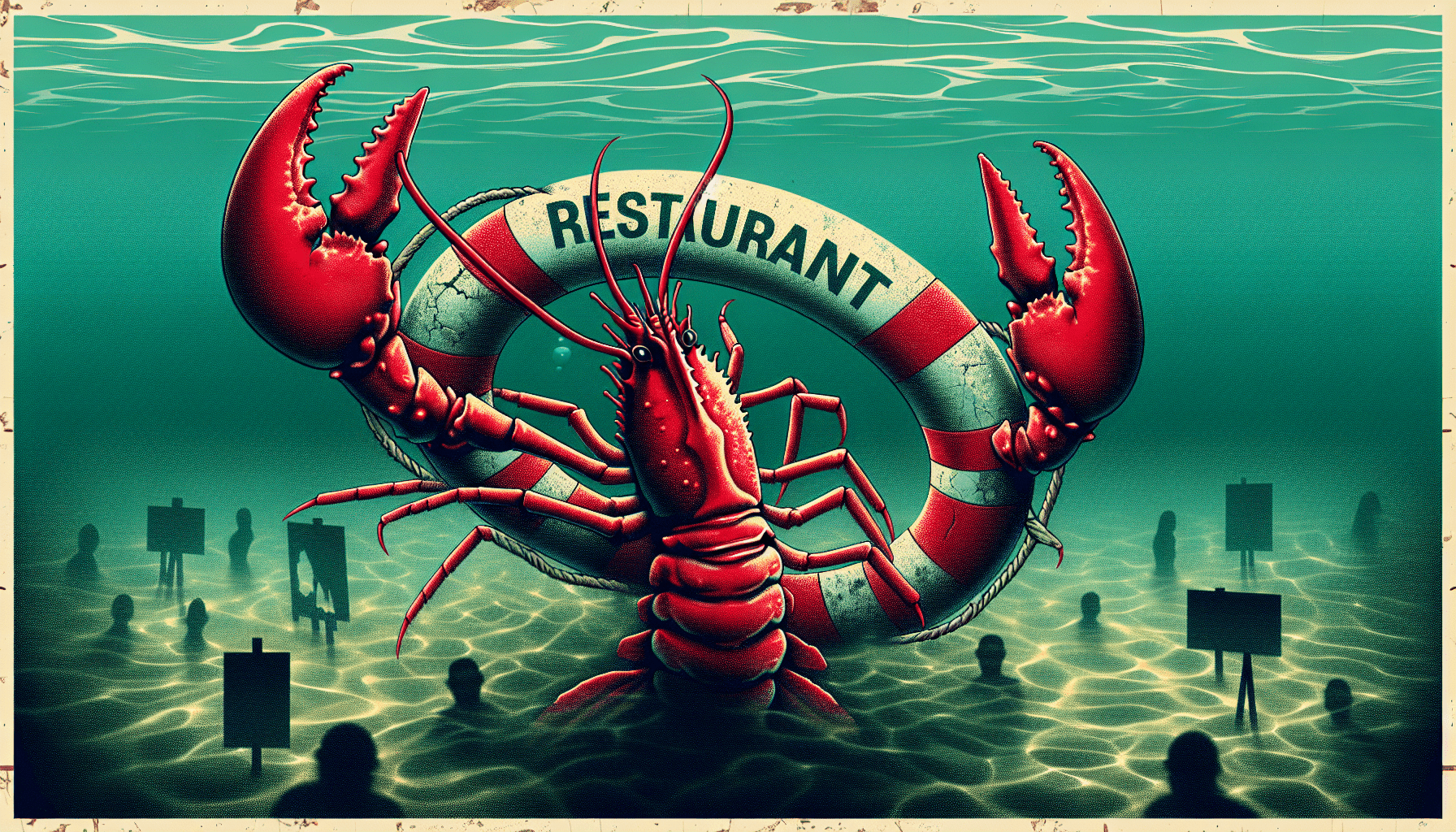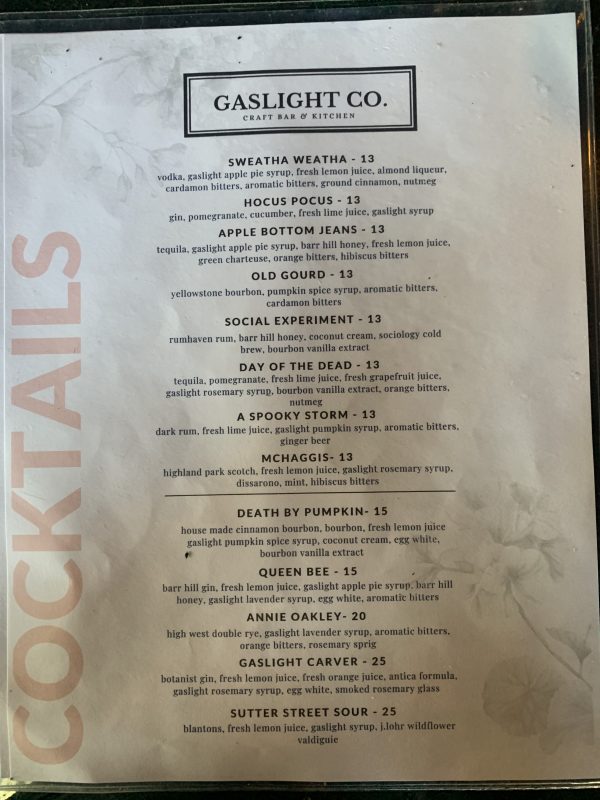6 Pack Luggage Tags for Cruise Ship Essentials for NCL, Princess, Carnival, Royal Caribbean and Celebrity Cruise Necessities by SEAVILIA
$5.09 (as of April 16, 2025 04:30 GMT +00:00 - More info)Red Lobster has recently made headlines by filing for Chapter 11 bankruptcy, leading to the closure of at least 48 locations nationwide. Despite this financial turmoil, the iconic seafood chain continues to operate its remaining 650 locations. Customers can still enjoy their meals as usual, thanks to an influx of $100 million in debtor-in-possession financing and additional funds from auctioning the kitchen equipment of closed outlets. However, this news hasn’t been without its downsides. Many former employees have voiced their grievances online, criticizing the sudden layoffs and lack of severance pay. While Red Lobster’s leadership remains optimistic about the future, the impact on its workforce and the legal questions surrounding the closures have left a sour taste for many.
What Red Lobster’s Chapter 11 Bankruptcy Means For Its Remaining Locations
Have you recently heard the buzz about Red Lobster filing for Chapter 11 bankruptcy and wondered what it means for your favorite seafood spot? You’re not alone! Red Lobster has been a staple in many communities for decades, and the news has left lots of people scratching their heads and worrying about what’s next. Let’s dive into the details and see what this bankruptcy filing means for Red Lobster and its remaining locations.

Get an Official Zagat Restaurant Guide
The Background: Why Did Red Lobster File for Chapter 11?
The Big Promotion Backfire
Remember that Ultimate Endless Shrimp promotion that customers couldn’t get enough of? While it was a huge hit with patrons who loved getting tons of shrimp for a great price, it didn’t exactly work out financially for Red Lobster. In 2023, the promotion ended up costing the company more than it earned, resulting in a staggering $22 million loss.
The Economic Storm
Thiraphong Chansiri, CEO of Red Lobster’s parent company, Thai Union Group, pointed to several factors contributing to the chain’s financial woes. These included the lingering effects of the COVID-19 pandemic, ongoing industry headwinds, higher interest rates, and rising material and labor costs. All these issues combined to create a scenario where Red Lobster was steadily accumulating unpaid debt.
Closing Locations
Last week, Red Lobster closed at least 48 locations nationwide, shocking both employees and customers. But even with these closures, Red Lobster remains the world’s largest seafood restaurant company, boasting around 650 locations that will stay open and operate as usual during the Chapter 11 process.
What is Chapter 11 Bankruptcy?
Definition and Purpose
Chapter 11 bankruptcy is essentially a court-supervised reorganization of a company’s finances. It allows a business to restructure its debts, repay creditors, and generally get back on track while continuing to operate. Unlike a Chapter 7 bankruptcy, which means closing down entirely, Chapter 11 aims to keep the business running.
Immediate Effects
For Red Lobster, this means its remaining 650 locations will stay open to serve you that seafood you love. So, while they’re licking their financial wounds, you can still dine-in and enjoy your favorite dishes.
Get an Official Zagat Restaurant Guide
Financial Support During Restructuring
Debtor-in-Possession (DIP) Financing
An essential aspect of Chapter 11 is debtor-in-possession (DIP) financing, which provides the company with the funds needed to keep operating during the bankruptcy process. Red Lobster has secured $100 million in DIP financing from existing lenders to help them cover operational costs and start the turnaround effort.
Auctioning Kitchen Equipment
Additionally, Red Lobster plans to auction off the kitchen equipment from the nearly 50 closed restaurant locations. This extra cash flow will help strengthen their financial standing as they move through the restructuring process.
Impact on Customers and Employees
Dining Experience
For now, you can still enjoy a meal at your local Red Lobster. The menu remains the same, and the doors are open as usual. However, it’s worth mentioning that some locations might see minor changes as the company streamlines operations.
Employees’ Struggles
While Red Lobster’s upper management may see Chapter 11 as a chance for a fresh start, countless employees are feeling the brunt of the closures and sudden job losses. Many former employees have expressed their outrage on social media, particularly on Instagram, where Red Lobster recently posted a now-notorious “Live, laugh, lobster on Mother’s Day” image. Workers were upset about being made to work the busiest day of the year without being told it would be their last. Moreover, questions about the legality of the sudden closures and lack of severance pay have been raised.

The CEO’s Optimism
Positive Outlook
Despite the turmoil, Red Lobster CEO Jonathan Tibus is optimistic about the company’s future. In a recent press release, Tibus stated that “this restructuring is the best path forward for Red Lobster.” He emphasized that the support from lenders and vendors would help ensure a smooth sale process, with the company staying focused on both its employees and guests.
Long-term Goals
The overall goal is to emerge from Chapter 11 stronger and more financially stable. While the journey might have some bumps along the way, the intent is to rebuild the brand and return to profitability without sacrificing the customer experience.
The Road Ahead for Red Lobster
Day-to-Day Operations
In the short term, your dining experience at Red Lobster shouldn’t change much. You’ll still find the beloved Cheddar Bay Biscuits and all your favorite seafood dishes. However, behind the scenes, the company will be making significant adjustments to better manage its finances and operational strategy.
Strategic Changes
To prevent future financial pitfalls, Red Lobster may revise their promotional strategies, adjust menu pricing, and refine their supply chain operations. These changes will be critical for ensuring long-term sustainability.
Community Reaction
The community reaction so far has been mixed. Loyal customers are relieved that many locations remain open, but there’s also a sense of unease given the abrupt closures and the impact on employees. It’s a delicate balance between preserving customer trust and making necessary financial adjustments.
The Legal and Ethical Considerations
Legal Compliance
Filing for Chapter 11 bankruptcy involves adhering to strict legal guidelines and maintaining transparency with creditors and stakeholders. Any sudden closure or job termination must comply with state and federal employment laws. There are ongoing discussions and potential scrutinies around whether Red Lobster handled the closures legally and ethically.
Employee Compensation
A critical issue raised by ex-employees is the lack of severance pay and the abruptness of the closures. Ethics aside, legally, companies typically need to provide notice or compensation when closing a location. Red Lobster’s actions have sparked debates over whether companies should be obligated to provide more support for displaced workers.
Lessons Learned and Moving Forward
What Went Wrong?
Firstly, Red Lobster’s experience highlights the risks of aggressive promotions like the Ultimate Endless Shrimp. While it attracts customers, the financial implications need thorough evaluation. Secondly, external factors like the pandemic and rising costs played a significant role, reminding businesses to always have contingency plans.
Future Planning
Going forward, Red Lobster must be more agile and better prepared for unexpected challenges. Continuous evaluation of promotions, better financial management, and enhanced support systems for employees can help prevent similar situations.
Remaining Locations and Their Future
The 650 remaining Red Lobster locations are now under the spotlight. Their performance and the company’s ability to navigate this challenging period will determine the future of the brand. Loyal customers and employees are hopeful that Red Lobster will weather this storm and come out stronger.
Conclusion
Red Lobster’s Chapter 11 bankruptcy filing came as a shock to many, but it also provides a chance for the brand to reorganize and return to its former glory. For now, you can still enjoy your favorite seafood dishes at most locations. However, it’s clear that the company needs to make significant changes to ensure long-term success and stability.
The key takeaway here is that while Chapter 11 offers a lifeline, it demands careful planning, transparent communication, and an unwavering commitment to both customers and employees. As Red Lobster navigates this complex process, we’ll be watching closely to see how they balance their financial restructuring with the need to maintain customer satisfaction and employee welfare.
Stay tuned, and hopefully, we’ll soon see a revitalized Red Lobster that’s better prepared for the challenges of the modern dining landscape.
Get an Official Zagat Restaurant Guide






